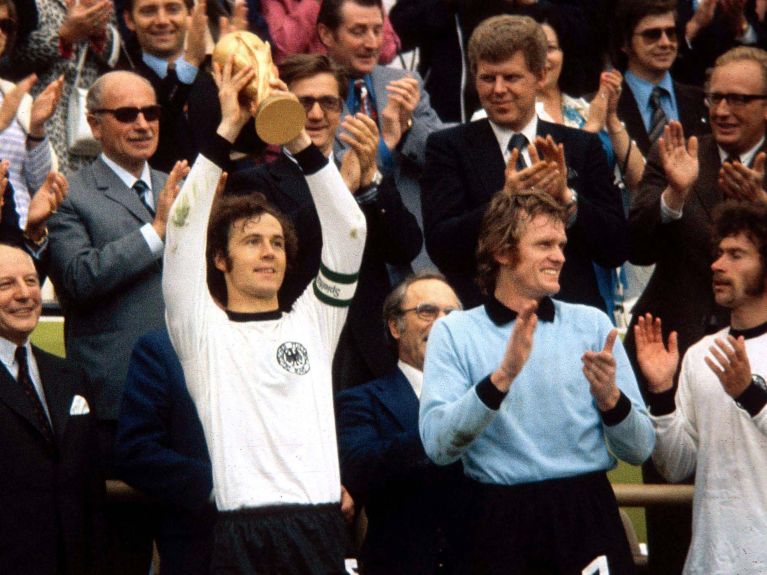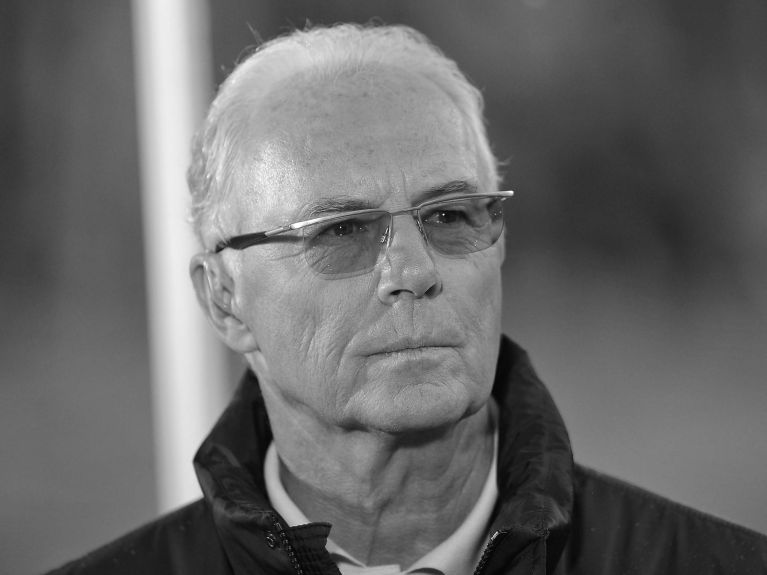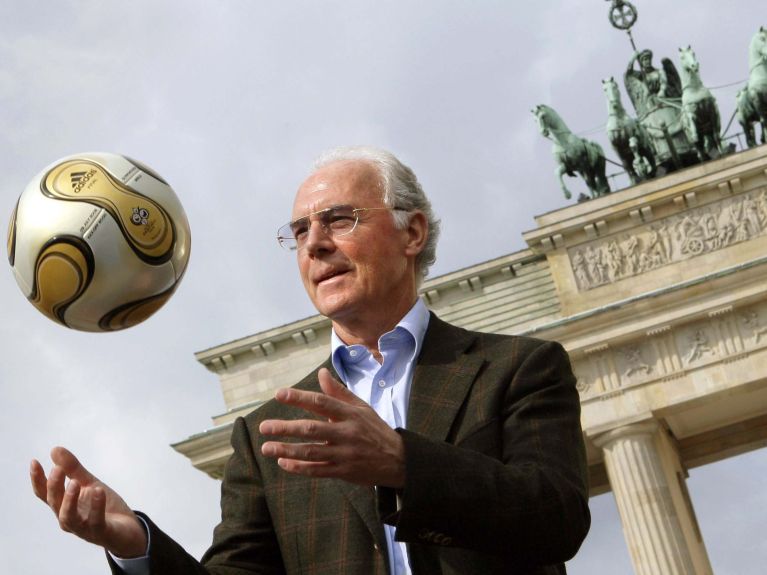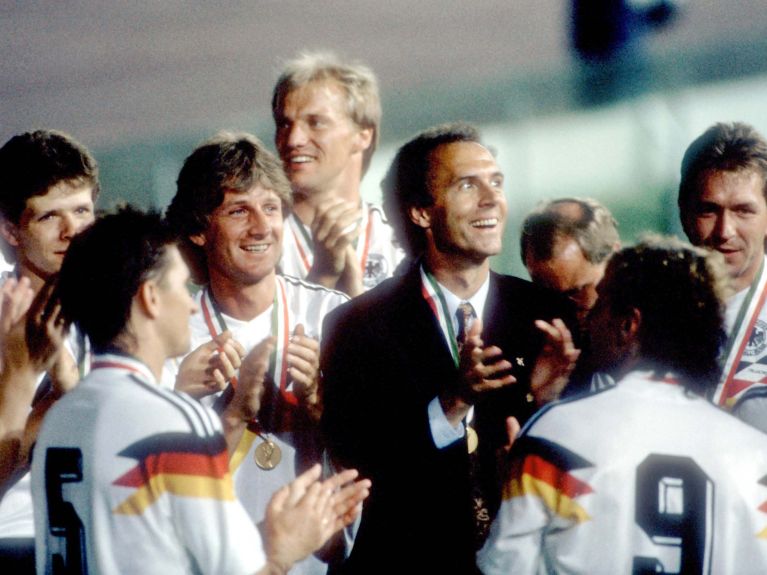Franz Beckenbauer left his mark on German football
Franz Beckenbauer was Germany’s greatest football legend. He won the World Cup both as a player and a manager.

Franz Beckenbauer was already legendary as a player. His lightness of foot and elegance on the pitch led early on to his being nicknamed “der Kaiser” - the Emperor. And few have ever achieved such success: He won the European Championship and the World Cup with Germany’s national squad, and chalked up national and international titles with FC Bayern Munich. In his second career, he also led Germany to a World Cup victory in his role as manager. And ultimately, as a football official, he played a vital part in Germany’s successful bid to host the 2006 Football World Cup.
Franz Beckenbauer was without doubt the most influential personality in German football and one of the greatest players of all time. People in Germany and around the world were deeply saddened by the news of his death at the age of 78 on 7 January 2024.
Early career at FC Bayern Munich
Born in Munich’s Giesing district, Beckenbauer already signed with FC Bayern Munich as a junior player. He quickly rose to become one of the club’s key players. During the course of his career, his achievements with FC Bayern Munich included four national championship titles, three European Cup victories and the World Cup. “Franz Beckenbauer is the greatest figure FC Bayern has ever had,” said Bayern Munich’s Honorary President Uli Hoeneß, who won the World and European Cup titles alongside Beckenbauer. “As a player, coach, president, man - unforgettable. Nobody will ever equal him.”
European and World Cup titles as a player
Beckenbauer also influenced the German national squad’s game. In 1972, he first led them to the European Cup title. Two years later, he followed this up with the greatest triumph during the World Cup in his own country: With him as captain, Germany beat the Netherlands in the final. Towards the end of his career, he also played alongside the Brazilian star Pelé with Cosmos New York in the USA.
His death was mourned greatly worldwide. “There has never been another like him, neither before nor since. The figure of the eternal emperor is unrivalled,” is how the Spanish sports newspaper “Marca” praised him. “Le Parisien” from France wrote: “Franz Beckenbauer will forever belong in the category of immortal personalities of sport.” The UK’s “Guardian” described him as “the complete footballer”.
World Cup title as manager of the German national team
Following his active career, he was also successful as manager of the German national team. First, as a manager without a coaching certificate, he led the national squad all the way to the World Cup final against Argentina in 1986, which Germany lost 2:3. Victory then came four years later at the 1990 World Cup in Italy: In a rematch of the previous final against Argentina with superstar Diego Maradona, Germany won 1:0.
The 2006 summer fairy tale – the football World Cup in Germany
The German Football Association took advantage of his charisma and multilingual skills when launching its bid for the 2006 World Cup. The tournament, which later came to be dubbed Germany’s “summer fairy tale”, became the highlight of Beckenbauer’s career as a football official. Later, he was accused of wrongdoing when dubious payments came to light. Former top German politicians came out in defence of Beckenbauer amid the 2006 World Cup scandal.
The “exceptional phenomenon” that was Franz Beckenbauer
It wasn’t only the world of football that was shaken by the death of the “emperor”. “Franz Beckenbauer was one of the greatest footballers in Germany and for many ‘der Kaiser’ - also because of the excitement for German football he created for generations,” wrote German Chancellor Olaf Scholz. German President Frank-Walter Steinmeier paid tribute to him as “an exceptional phenomenon” and “outstanding ambassador of our country”.
(with the dpa)



